10 secrets for surviving allergy season
For when you can't stop sneezing, these simple tips will help.
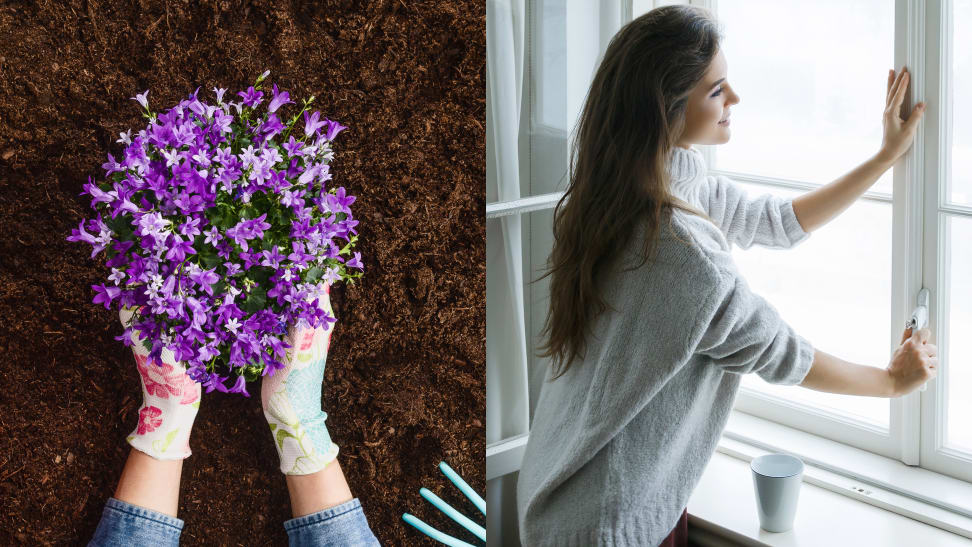 Credit:
Getty Images
Credit:
Getty Images
Recommendations are independently chosen by Reviewed's editors. Purchases made through the links below may earn us and our publishing partners a commission.
Ah, spring. It brings warmer weather and lovely flowers, but it also ushers in allergy season. All the freshly blooming plants, trees and grasses release pollen into the air, leaving our cars coated in yellow film and many of us with sniffly noses, itchy eyes and scratchy throats—lovely, right?
In addition to taking antihistamines to combat your symptoms, there are a number of other steps you can take to get through allergy season with minimal suffering. Here are our top tips to help you survive the onslaught of pollen to come.
1. Plan your week around the pollen forecast
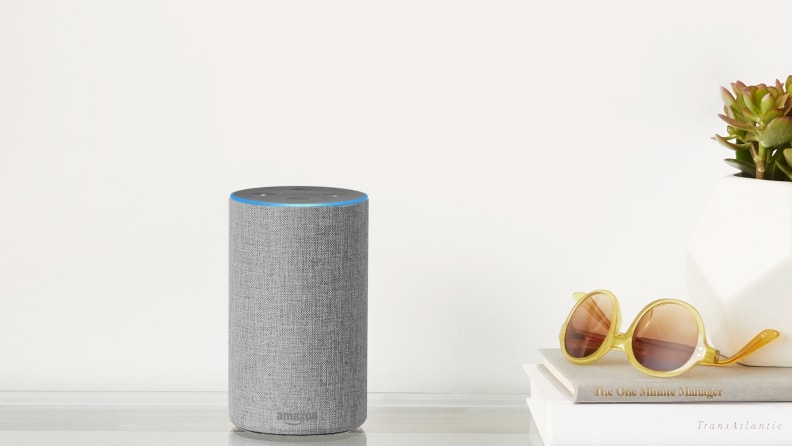
Just ask Alexa for the pollen count.
Pretty much every weather website also offers a pollen forecast that lets you know when these little annoying particles will be at their worst. Make it a habit to check the pollen forecast in your area periodically—you can even just install an skill like the Daily AllergyCast on your Echo so you can simply ask Alexa for the pollen count.
When the pollen count is especially high, it’s best to avoid outdoor activities like mowing the lawn or going for a jog. You’re better off going to the gym instead and saving those activities for days when the pollen isn’t as bad.
2. Keep the windows closed
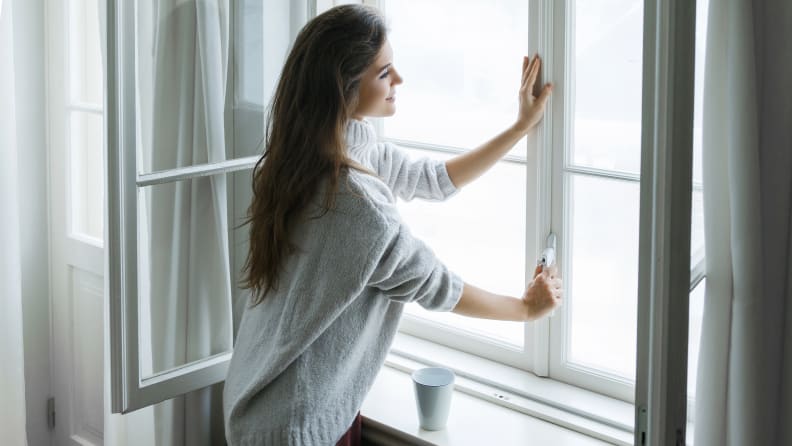
Keeping the windows shut is a good way to help reduce the amount of allergens in your home.
After being cooped up inside all winter, there’s nothing more refreshing than opening all the windows to let in the fresh spring air… except then all the pollen comes with it. As painful as it may be, it’s best to keep your windows closed during allergy season—that goes for both house and car windows.
While the spring air may seem clean, it’s actually carrying thousands of little particles into your home (or car), and you’ll end up cleaning a lot more to keep yourself from sneezing nonstop. Instead, put new filters in your air condition system and let that freshen up your indoor air quality.
3. Invest in a powerful vacuum...
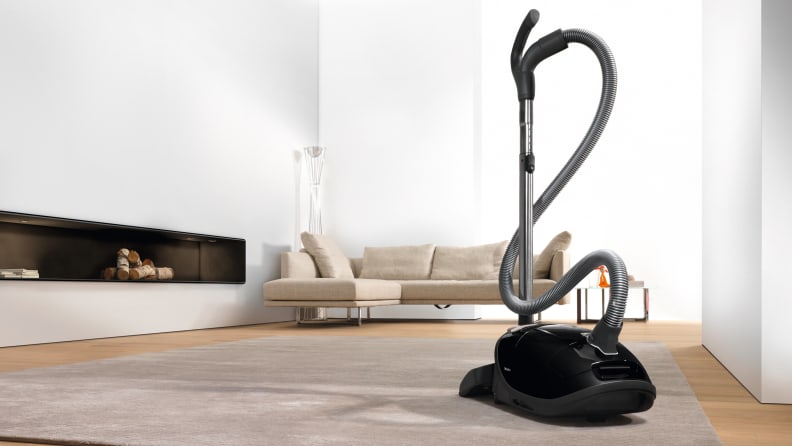
Get all those allergens out of your carpet with this canister vacuum.
In addition to keeping as much pollen out of the house as possible, it’s important to stay on top of your cleaning regimen. After all, even if you’re diligent about taking off your shoes when you get home and keeping the windows closed, chances are pollen will still find its way into your house.
To remove as much pollen as possible from your home, you’ll need a powerful vacuum cleaner, preferably one with a HEPA filter. We recommend the Miele Complete C3 Kona, which was the Best Canister Vacuum we tested, picking up more dirt than any of its competitors. It even comes with attachments to help you clean thick carpets and hard-to-reach corners.
Get the Miele Complete C3 Kona on Amazon for $899
4. ...and a HEPA air purifier
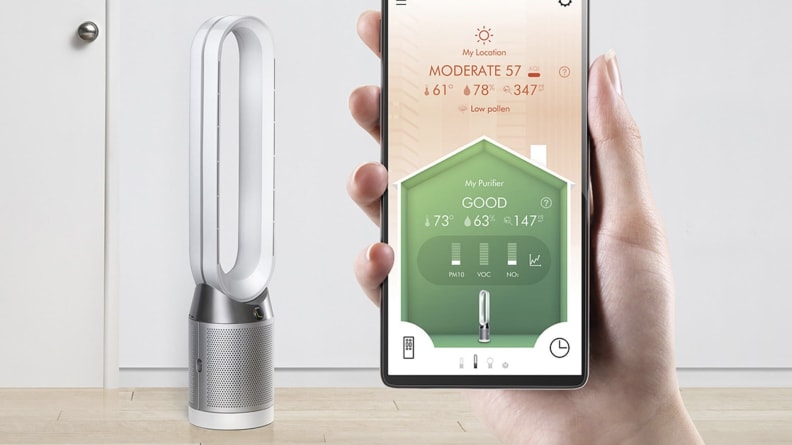
A true HEPA filter will remove 99.97% of small particles from the air.
While you’re at it, it’s also a good idea to purchase an air purifier, specifically with a HEPA filter. If you’re not familiar with this term, it stands for a “high-efficiency particulate air” filter, and the Centers for Disease Control and Prevention explains that a true HEPA filter will capture 99.97 percent of particles 0.3 microns or bigger. Long story short, it will effectively remove pollen and other allergens from the air in your home.
There are a lot of air purifiers to choose from, so make sure you’re getting one that’s big enough for your space and has a true HEPA filter. In particular, we like the Dyson Pure Cool TP04, which connects to WiFi so you can control it via your smartphone.
Get the Dyson Pure Cool TP04 on Amazon for $549
5. Use pillow covers
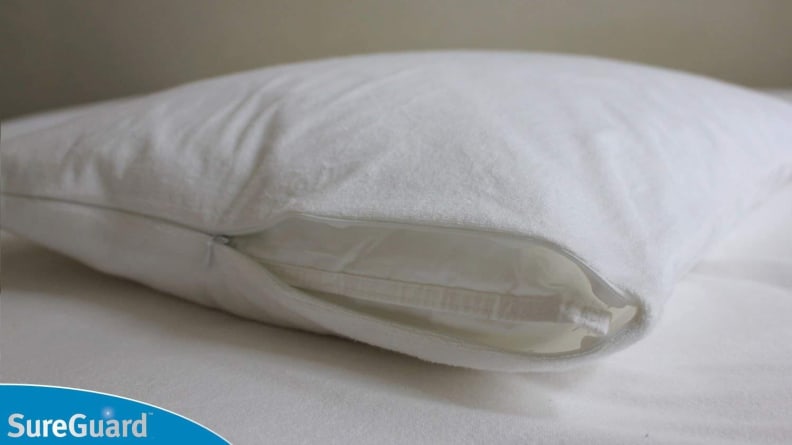
Don't let those allergens get into your pillow.
Another way to keep allergens from wreaking havoc on your days (and nights) is by using pillow covers. These covers provide a barrier against pollen, keeping the tiny particles from working their way into your pillow. Wash the covers—and your pillowcases—regularly for a sniffle-free night’s sleep. Oh, and for best results, take a shower before bed to minimize the amount of allergens that make it into your bedroom.
Get the Standard Size SureGuard Pillow Protectors, Set of 2 on Amazon for $27.97
6. Give your pets regular baths
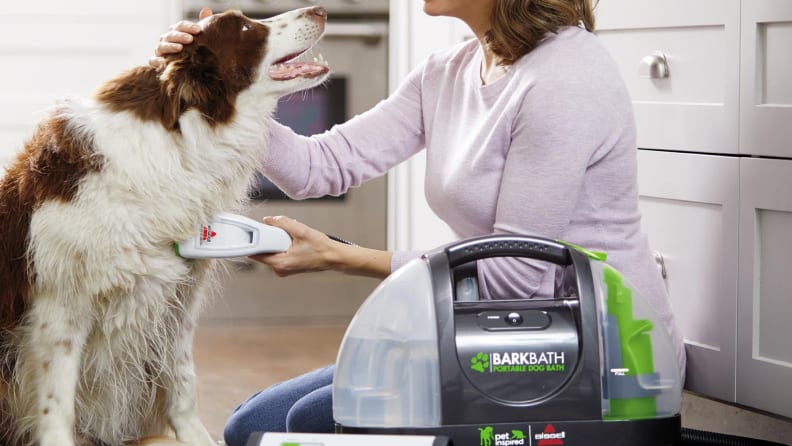
This cool tool lets you wash your dog without making a mess.
You can take off your clothing after you spend time outside during allergy season, but your pets can’t! That means they’ll inevitably bring allergens into the house, especially if they have long hair that will trap the little particles.
If your pets love playing outside in the yard during the spring, you’ll want to give them regular baths to minimize the allergens that they track around the house. You can simply do this in your bathtub or shower, or invest in a special dog-grooming system like the Bissell BarkBath.
Get the Bissell BarkBath QuietTone on Chewy for $159.99
7. Avoid gardening when you can
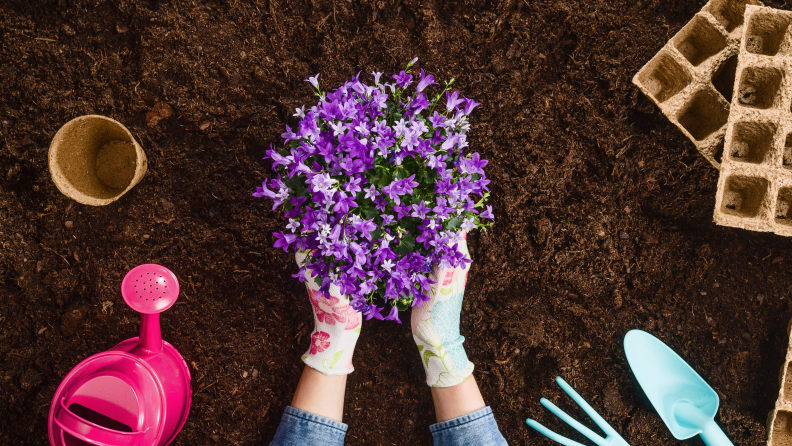
Gardening is a wonderful spring activity, but it's bound to upset your allergies.
If you have a green thumb, you probably can’t wait to get out there are start tending your garden once the warmer weather arrives. However, on those high-pollen days, the last place you want to be as an allergy sufferer is right in the middle of all the blooming plants!
When possible, try to put off yard work until the pollen forecast isn’t so severe, and if you have to get out there and pull weeds, wear a face mask and wide-brimmed hat to protect your face from the allergens. Take off your clothes as soon as you get inside, then shower off.
8. Clean your washing machine
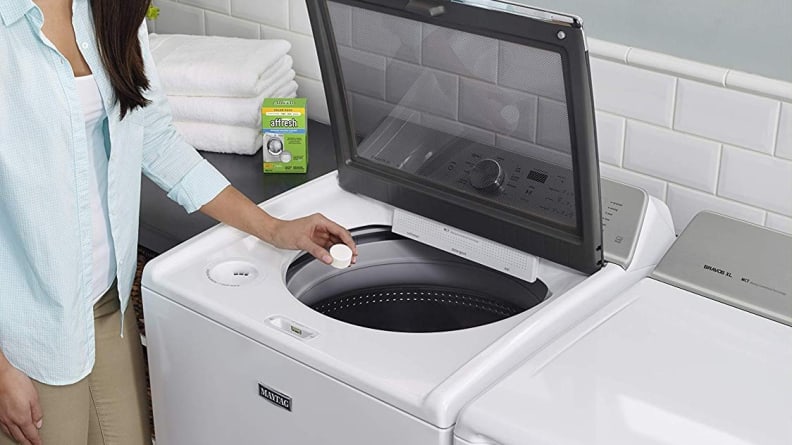
Make sure mold isn't contaminating your clean clothes.
When was the last time you cleaned your washing machine? This essential appliance is often a lifesaver during allergy season, especially if it has an allergen cycle, but it can also grow mold if not cleaned properly.
You can clean your washer with baking soda and vinegar, or you can buy special tablets, such as Affresh, to toss in the appliance every few weeks.
Get Affresh Washer Machine Cleaner on Amazon for $11.97
9. Make sure the culprit isn’t inside
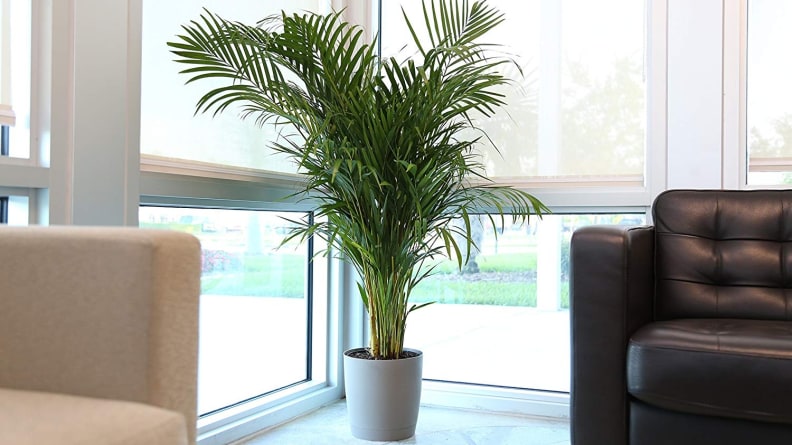
You could be allergic to your house plants.
Following all these steps but still experiencing symptoms? Then the culprit might actually be inside your home! Studies have shown that a surprising number of people—78 percent in one study—are actually allergic to certain houseplants, including ficus, ivy, yucca and palm trees. So that fiddle leaf fig tree in your living room might be to blame for your sneezing! If you think this might be the case, try putting the plant outside for a few days to see if your symptoms improve.
10. Avoid foods that can exacerbate your symptoms

It seems obvious, but avoid foods that trigger your allergies if you're already suffering from environmental triggers.
Put down that ice cream! Certain foods, particularly dairy and sugar, may make your allergy symptoms worse.
“Sugar raises inflammatory markers in the body, which also worsen symptoms of allergies,” Amy Shah, M.D., explains to Aaptiv. She recommends people cut soda and candy out of their diet to see if it helps their symptoms. Further, eating dairy products often increases mucus production, which can also make your seasonal allergy symptoms seem worse.
Bottom line? Try to steer clear of these foods for a month or so until your allergy symptoms dissipate.
Prices are accurate at the time this article was published, but may change over time.

